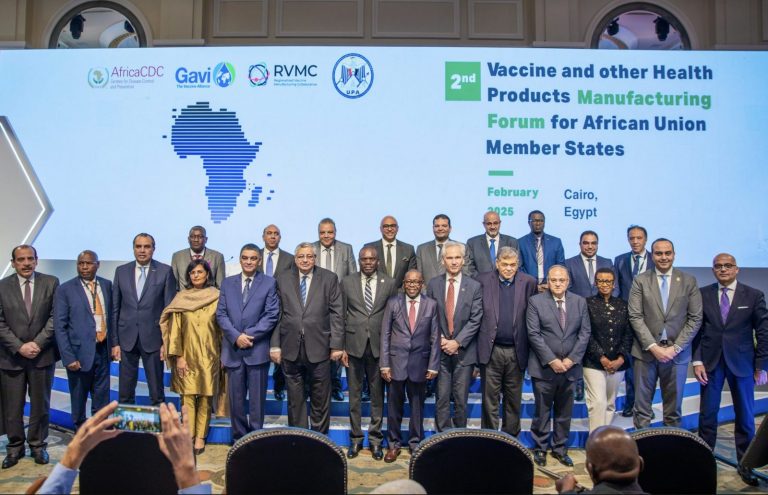
The African Centres for Disease Control and Prevention (Africa CDC) is intensifying efforts to secure vital funding aimed at bolstering the continent’s health security systems in response to the growing challenges posed by pandemics, emerging diseases, and health crises. As Africa continues to face increasing health threats, the importance of a well-equipped, well-funded, and coordinated health security infrastructure has never been clearer.
Africa’s healthcare system has long struggled with inadequate resources, weak health infrastructure, and insufficient investment, making it particularly vulnerable to outbreaks of infectious diseases. While some African countries have made strides in improving their healthcare services, the region remains ill-prepared for large-scale health emergencies. The COVID-19 pandemic highlighted these vulnerabilities and underscored the necessity for a more robust health security framework.
In light of this, the Africa CDC, a specialized healthcare agency established to strengthen the region’s disease surveillance, prevention, and control mechanisms, is stepping up its efforts to ensure that the continent is better prepared for future health threats. The organization has launched an ambitious campaign to mobilize funding from international donors, governments, and the private sector to secure resources for its health security initiatives.
The Africa CDC’s approach centers around three key priorities: enhancing disease surveillance and early detection systems, improving laboratory capacity, and building sustainable health infrastructure across the continent. This strategy aims to address the systemic gaps that leave African countries vulnerable to public health crises.
Strengthening Disease Surveillance and Response: One of the core pillars of Africa CDC’s strategy is the expansion and improvement of disease surveillance systems across African nations. Early detection is critical for containing potential outbreaks before they spread uncontrollably. The Africa CDC is working with national governments to establish real-time surveillance networks, which can quickly identify and respond to health emergencies.
Building Laboratory Capacity: The pandemic exposed significant gaps in laboratory testing and diagnostics. Africa CDC aims to enhance the diagnostic capabilities of African laboratories by improving infrastructure, training staff, and ensuring that countries have access to the latest technologies for detecting pathogens.
Developing Sustainable Health Infrastructure: Long-term health security depends on having resilient healthcare systems in place. Africa CDC is committed to helping countries build sustainable health infrastructure, including hospitals, health centers, and human resource capacity. By improving these foundational elements, the organization hopes to create a solid foundation for responding to both routine health needs and emergency situations.
Securing the necessary financial backing for these initiatives is a major hurdle. Africa CDC’s leadership is actively engaging with international organizations, governments, philanthropies, and the private sector to raise funds for health security projects. These efforts include direct appeals for donations, public-private partnerships, and exploring innovative financing models.
One of the most ambitious projects is the Africa Health Fund, a proposed multi-donor initiative that would provide targeted financial support to Africa CDC and its partner institutions. This fund is designed to channel resources into critical health areas, including infrastructure development, workforce training, and the purchase of medical supplies and equipment.
In addition to external funding, Africa CDC is advocating for increased domestic investments in health security. It is working with African Union member states to ensure that health security is prioritized in national budgets, alongside efforts to improve the overall governance and management of health systems.
While the Africa CDC is focused on regional health security, its efforts are also aligned with global health initiatives. The World Health Organization (WHO) and other international bodies have emphasized the importance of building regional capacities for pandemic preparedness, and Africa CDC is positioning itself as a critical partner in these global efforts.
Collaboration with international organizations and the private sector is seen as essential for tackling health security challenges effectively. With climate change, population growth, and increased urbanization further complicating Africa’s health landscape, cooperation across borders and sectors is vital for strengthening the continent’s health resilience.
While the road to securing sustainable funding for Africa’s health security remains challenging, the Africa CDC’s proactive stance and strategic initiatives signal hope for a more secure and prepared Africa. With its focus on innovation, cross-border collaboration, and long-term investment, the Africa CDC aims to ensure that the continent is not only better prepared for future pandemics but is also equipped to handle everyday health challenges.
As Africa continues to face emerging health threats, the urgency of securing adequate financial resources cannot be overstated. Africa’s health security is not just a regional issue but a global one, and securing the necessary funding is essential for the well-being of millions of people. Through collaboration, innovation, and sustained investment, Africa CDC is positioning itself as a key player in shaping the future of health security in Africa.
With a well-coordinated approach and robust funding, Africa could pave the way for a healthier and more resilient future, making significant strides toward improving the health outcomes of millions across the continent.

